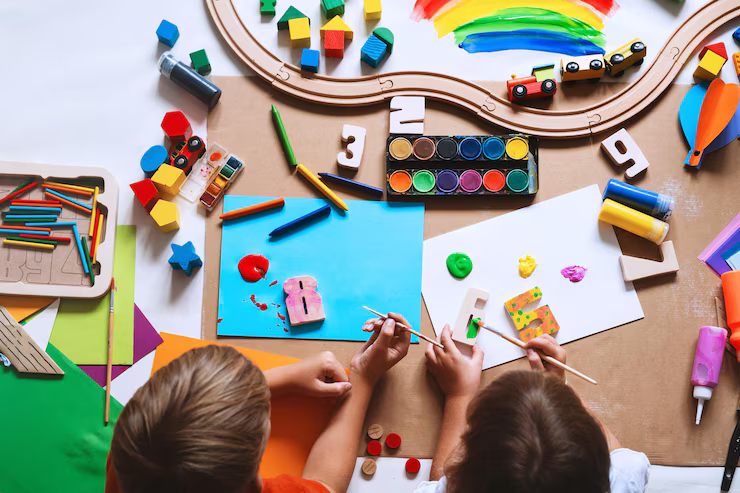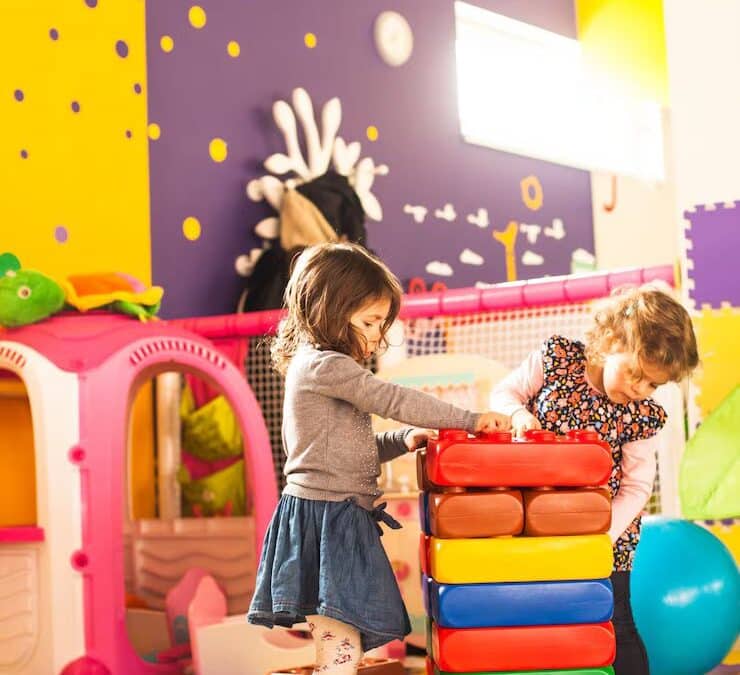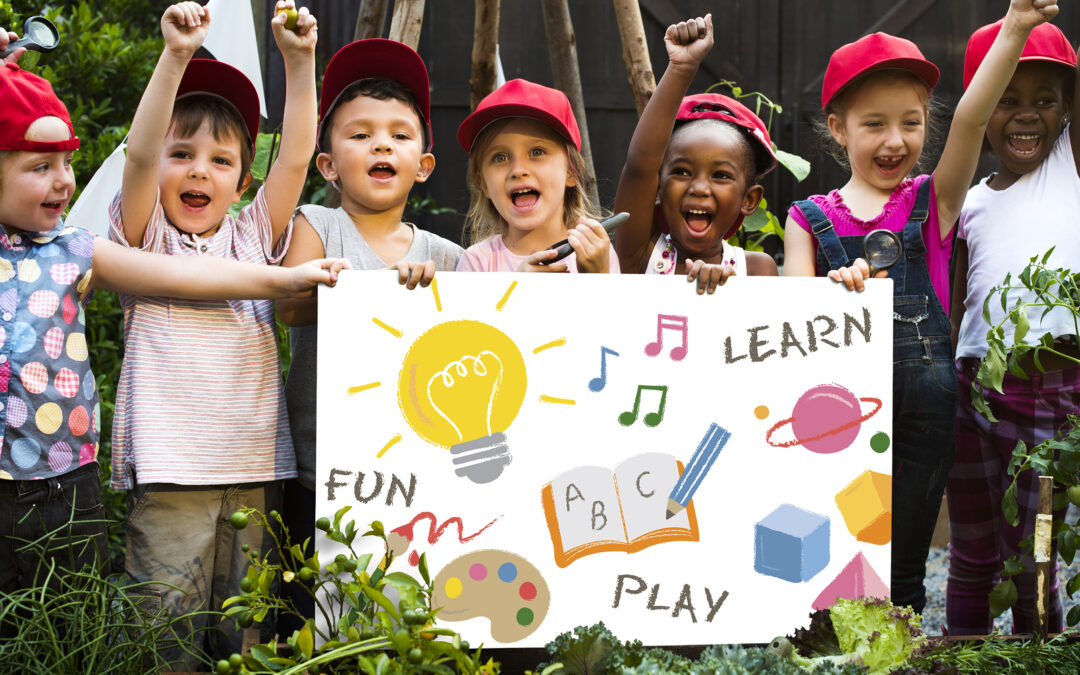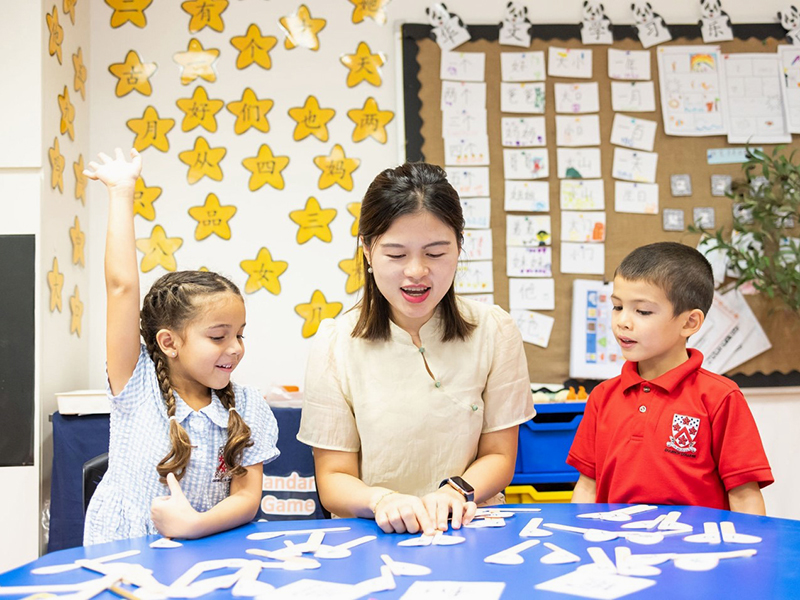In today’s dynamic world, the quest for an educational approach that not only nurtures academic prowess but also fosters independence, creativity, and a lifelong love for learning in toddlers has led many parents to the Montessori method.
Montessori education is lauded for its unique ability to tap into the innate curiosity and developmental needs of young learners. At Amici Montessori, we take this one step further by integrating bilingual services in Mandarin, English, and Spanish, preparing toddlers not just for school, but for a global future.
Why Choose Montessori for Your Toddler?
The question of “Is Montessori good for toddlers?” is met with a resounding yes by educational experts and parents alike. The Montessori method is designed around the principle that children are naturally eager for knowledge and capable of initiating learning in a supportive, thoughtfully prepared learning environment.
- Child-Centered Approach: Montessori education is renowned for its focus on catering to the individual needs and pace of each child. This approach ensures that toddlers receive personalized attention and guidance, fostering a love for learning from an early age.
- Developmental Milestone Support: The curriculum is meticulously designed to support key developmental milestones in toddlers, such as fine motor skills, language acquisition, and social development. Montessori schools provide the ideal environment for children to reach these milestones through activities that are both engaging and educational.
- Foster’s Independence and Self-Confidence: By allowing toddlers to choose their activities and work independently, Montessori education promotes self-confidence and independence. Children learn to trust in their abilities and make decisions, which are critical skills for lifelong success.
- Hands-On Learning: The Montessori method emphasizes hands-on, experiential learning. Toddlers engage with tactile materials that are specifically designed for their developmental stage, making learning more engaging and effective.
- Encourages Curiosity and Love for Learning: The open-ended nature of Montessori activities encourages toddlers to explore and ask questions, fostering a natural curiosity and love for learning. This intrinsic motivation to learn is a key benefit of Montessori education.
- Prepares for Future Academic Success: Studies have shown that children who attend Montessori schools often outperform their non-Montessori counterparts in reading, math, and social skills. The early foundation laid in a Montessori classroom prepares toddlers for future academic and life challenges.
- Social and Emotional Development: The mixed-age classroom setting promotes social interactions and empathy among children. Toddlers learn to collaborate, share, and respect others, which are crucial components of emotional intelligence.
The Montessori Difference: Learning Through Independence
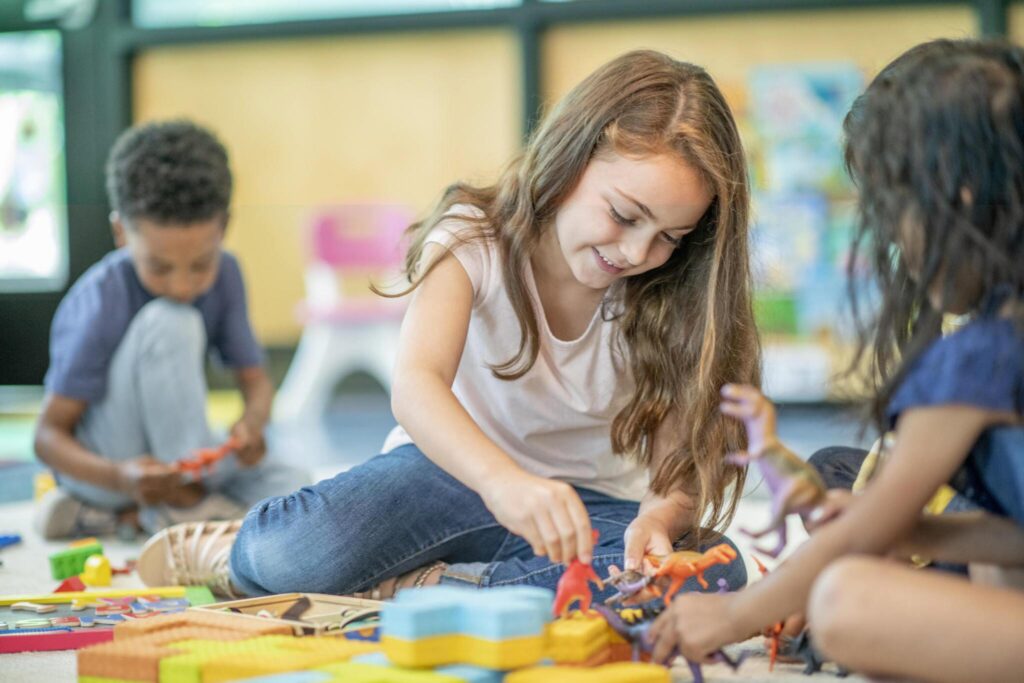
One of the core benefits of Montessori education is its emphasis on independent learning. In a Montessori toddler classroom, children are provided with a range of activities that they can choose from, allowing them to explore and learn at their own pace.
Child-Centric Learning Environment:
The design of the classroom caters to the physical dimensions of toddlers, making furniture and materials easily accessible and sized appropriately for small hands and bodies. This encourages independence by allowing children to engage with their environment without adult intervention.
Learning materials are placed on low shelves within easy reach, promoting autonomy in choosing activities.
Selection of Activities:
A diverse array of activities is available, covering various learning domains such as practical life skills, sensorial exploration, language, mathematics, and cultural studies. This variety ensures that children can follow their interests, which is pivotal for maintaining their engagement and motivation.
Each activity is designed to have a clear, achievable objective, supporting a sense of accomplishment upon completion.
Pace of Learning:
Children are allowed to work at their own pace without pressure or competition. This self-paced learning acknowledges individual developmental timelines, ensuring that each child feels neither rushed nor held back.
The absence of strict time limits for activities allows children to deeply engage with tasks, enhancing concentration and focus.
Role of the Educator:
Montessori educators act as guides rather than traditional teachers. They observe individual children and introduce new activities based on each child’s readiness, interests, and developmental needs, further personalizing the learning experience.
This approach ensures that learning is always aligned with the child’s current capabilities and challenges, fostering a supportive environment for growth.
Development of Life Skills:
Independence is not just about learning academic content but also about acquiring practical life skills. Activities such as dressing frames, pouring exercises, and cleaning up after activities teach essential skills for daily living, promoting self-reliance.
These tasks also contribute to the development of fine motor skills and coordination.
Encouragement of Choice and Decision-Making:
By allowing children to choose their activities, Montessori education fosters decision-making skills from an early age. This empowerment helps children understand their preferences and interests, contributing to their sense of identity.
The freedom to choose and the ability to move freely around the classroom encourage children to develop their own learning journey, fostering a lifelong love of learning.
Bilingual Advantages in Montessori Education

The integration of bilingual education within the Montessori framework at Amici Montessori offers a unique and enriching experience for toddlers, enhancing the intrinsic benefits of the Montessori method.
This approach to early childhood education not only adheres to the Montessori philosophy of fostering independence and curiosity but also leverages the cognitive and social benefits of learning multiple languages during the critical period of language development.
Cognitive Flexibility and Enhanced Problem-Solving Skills
Learning languages such as Mandarin, English, and Spanish simultaneously encourages the development of cognitive flexibility. This term refers to the brain’s ability to switch between thinking about two different concepts or to think about multiple concepts simultaneously.
Bilingual children often outperform monolingual peers in tasks that require this kind of mental juggling, indicating enhanced executive functions. These are crucial skills not just in academic settings but throughout life, aiding in decision-making, planning, and problem-solving.
Fostering an Appreciation for Cultural Diversity
One of the most enriching aspects of bilingual education in a Montessori setting is the natural appreciation for cultural diversity it instills in young learners. By exposing toddlers to different languages, we are also opening doors to the vast world of cultures that speak these languages.
This early exposure helps children understand and appreciate differences from a young age, fostering empathy, tolerance, and a global mindset. In today’s interconnected world, these qualities are invaluable.
Amplifying Montessori Education’s Benefits
The Montessori method is renowned for its focus on creating a prepared environment where children can explore and learn at their own pace, guided by their interests. When this method is combined with bilingual education, the benefits are amplified.
Language learning in Montessori settings is natural and integrated into daily activities, rather than being taught through rote memorization. This aligns perfectly with the Montessori emphasis on hands-on learning and real-world application, making the process enjoyable and effective.
Montessori for Toddlers: A Closer Look at the Curriculum
Our Montessori toddler program is tailored to meet the unique needs of young learners. From practical life activities that develop fine motor skills and independence to sensorial activities designed to refine the senses, our curriculum is holistic.
Language development is a key focus, with our bilingual program introducing toddlers to the sounds, words, and sentences of Mandarin, English, and Spanish, setting a strong foundation for future literacy and communication skills.
Why Montessori Works: Real-Life Success Stories
Across the globe, Montessori schools have witnessed the transformative impact of this educational approach on toddlers. At Amici Montessori, success stories abound, with parents noting significant milestones in independence, language acquisition, and social skills.
These testimonials underscore the effectiveness of the Montessori method and its ability to adapt to the needs of each child, answering the question, “Does Montessori work?” with a compelling affirmative.
Choosing the Right Montessori School for Your Toddler
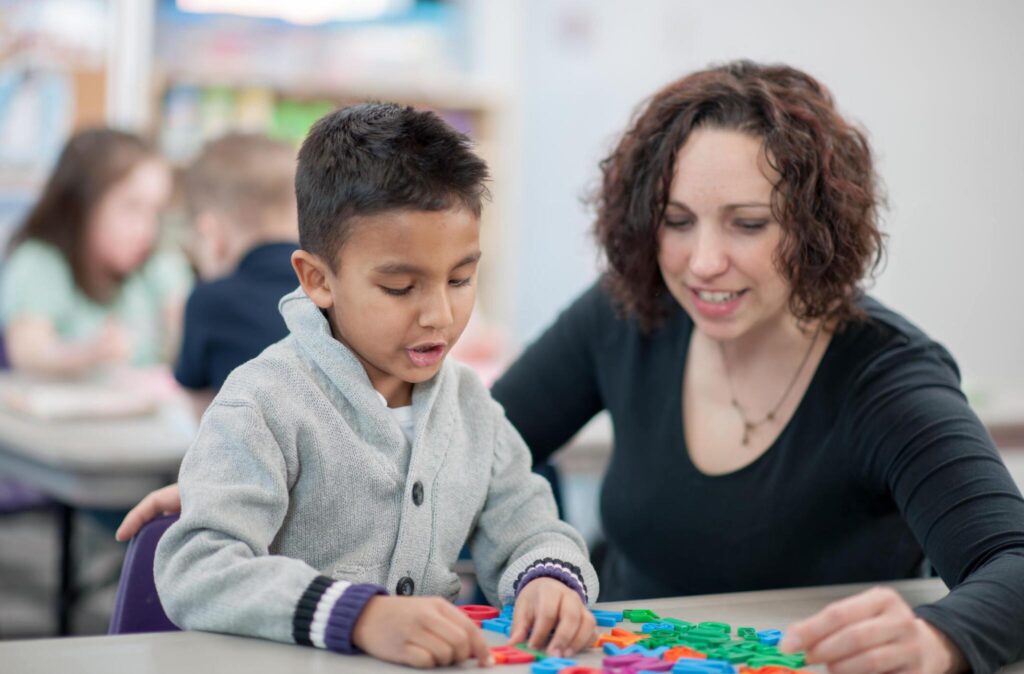
The cornerstone of choosing the right Montessori school lies in ensuring the program faithfully adheres to the core Montessori principles. These include respect for the child, a prepared environment that caters to the child’s natural development stages, and the promotion of independence through self-directed activity.
At Amici Montessori, these principles are not merely theoretical guidelines but the foundation of our daily practice. Our environments are meticulously designed to encourage curiosity, exploration, and the joy of discovery in every child.
In today’s globalized world, the ability to communicate in multiple languages is an invaluable asset. Amici Montessori’s bilingual program distinguishes itself by offering immersion in Mandarin, English, and Spanish, thus providing our toddlers with a unique advantage.
This multilingual environment not only enhances cognitive development and problem-solving skills but also instills a deep appreciation for cultural diversity from an early age. For parents questioning “is Montessori education good?” the added dimension of bilingual education at Amici Montessori provides a resounding affirmation.
Conclusion
The question of “is Montessori education good?” is further affirmed with the integration of bilingual education. At Amici Montessori, we are committed to providing a rich, immersive learning experience that not only adheres to the Montessori principles of respect, independence, and love for learning but also embraces the cognitive, social, and cultural benefits of bilingualism. Through this unique approach, we prepare our students not just for academic success, but for a lifetime of curiosity, empathy, and global awareness.


